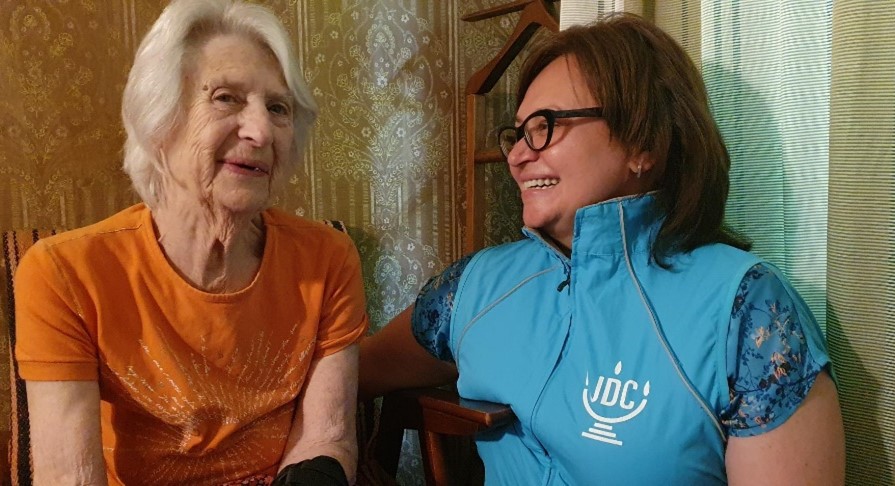- Pulished by
-
JDC at
-
July 20, 2022
A group of dedicated JDC workers have chosen to remain in Odesa, to offer comfort and support to Ukrainian Holocaust survivors even as rockets continue to rain down. One of them is Inna Vdovichenko. Below are some of Inna’s reflections on what life is like in Ukraine today and the important role JDC plays – caring for elderly and vulnerable families, sustaining a sense of community and helping internally displaced Jews.

Interview with Inna Vdovichenko, JDC in Odesa
Where are you right now? I’m sitting next to a window in my office, I try to come in almost every day.
What is it like on the streets? Normally, Odesa is full of summer tourists. Today, the “visitors” are internally displaced people. The first few days of the war, people were in shock, no-one believed this could happen. Now people are more used to it, but it’s still unpredictable and anxiety inducing.
How are you coping? I made my first home visit on the fifth day of the crisis. I felt I had to do something, otherwise I would not feel alive. Most of the people JDC serves are still here, and today there are even more people that need help. My work is one of the reasons I haven’t left Odesa. I visit elderly Holocaust survivors who haven’t left their apartments in months, and our time together makes a meaningful difference to them.
What are your hopes for the future? I don’t know what I will do or feel “when this is over.” Everything is so intense right now. Will I be able to rest? I don’t know. Personally, I want to see my family. Professionally, I want to meet with the people who have been sustaining me all this time: colleagues, board members, supporters. It’s impossible to say how many people reached out to me; I want to hug them and say “thank you.”
What does JDC’s support mean to the Jews of Odesa at this time? When I speak to the people we help, I hear again and again, “JDC gives us life.”
JDC continues to assist thousands of Jews in Odesa and the surrounding region. Thank you for being there for Inna and supporting all in her embrace.
-
JDC
-
February 08, 2023
JDC is in Turkey Helping Provide Relief and Recovery After Devasting Earthquakes
-
Web Development
-
February 06, 2023
One Refugee Worker In Moldova Discusses Her Lifesaving Work With Jewish Refugees
Get updates from The Joint & JDC
It’s the easiest way to keep up to date with all our latest news, events and fundraising activities.
© 2024 The Joint Australia | Partner of American Jewish Joint Distribution Committee, Inc

